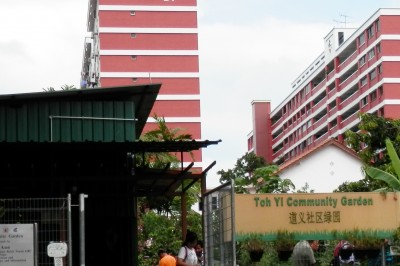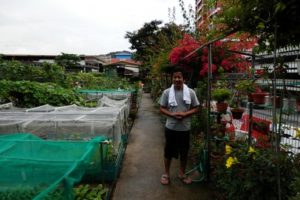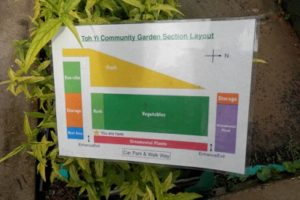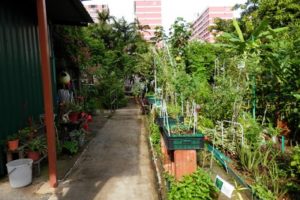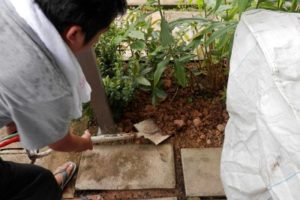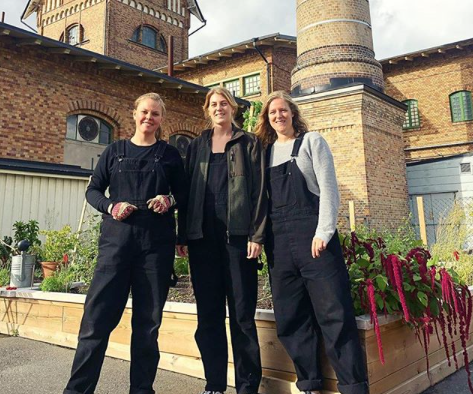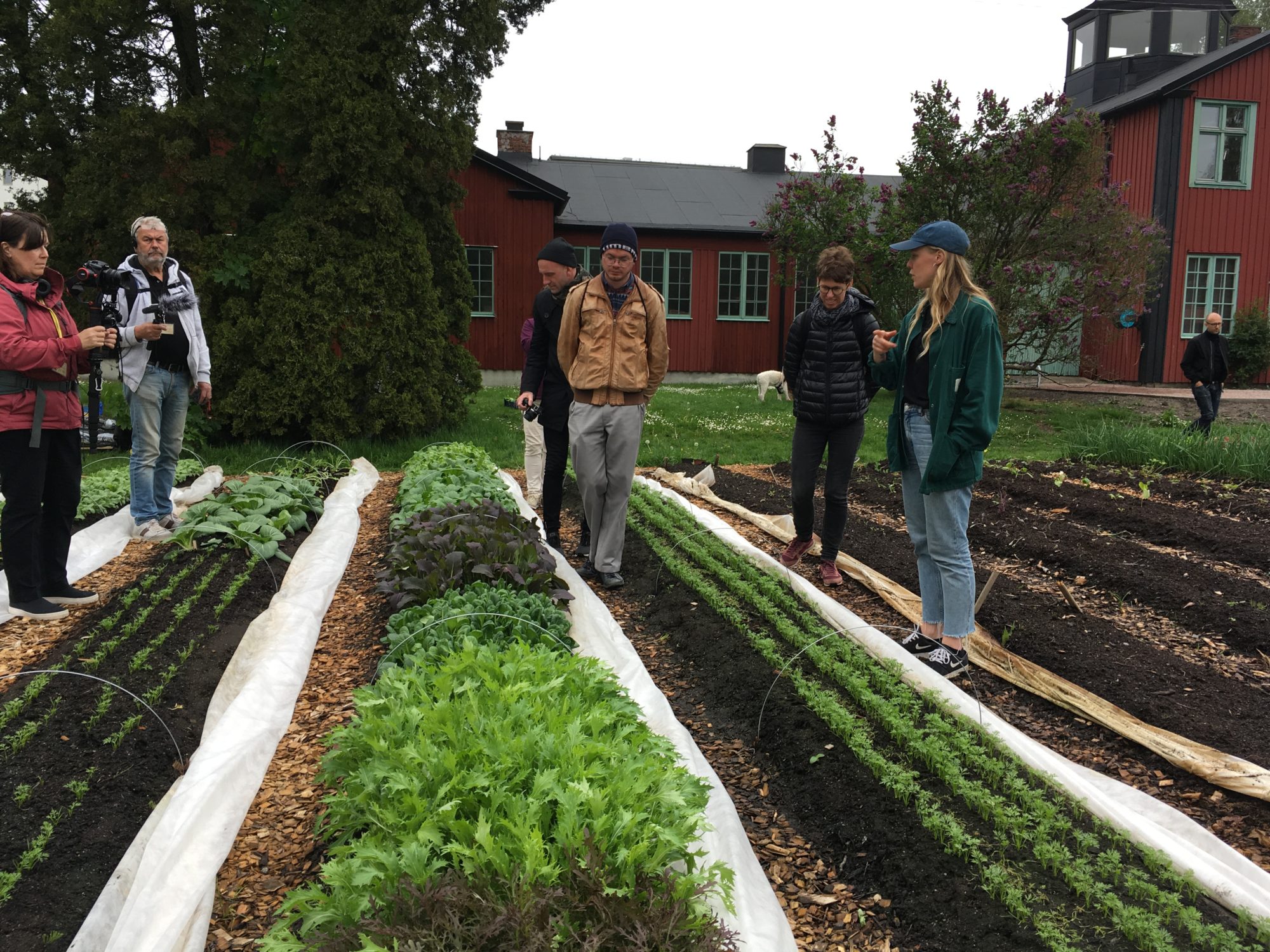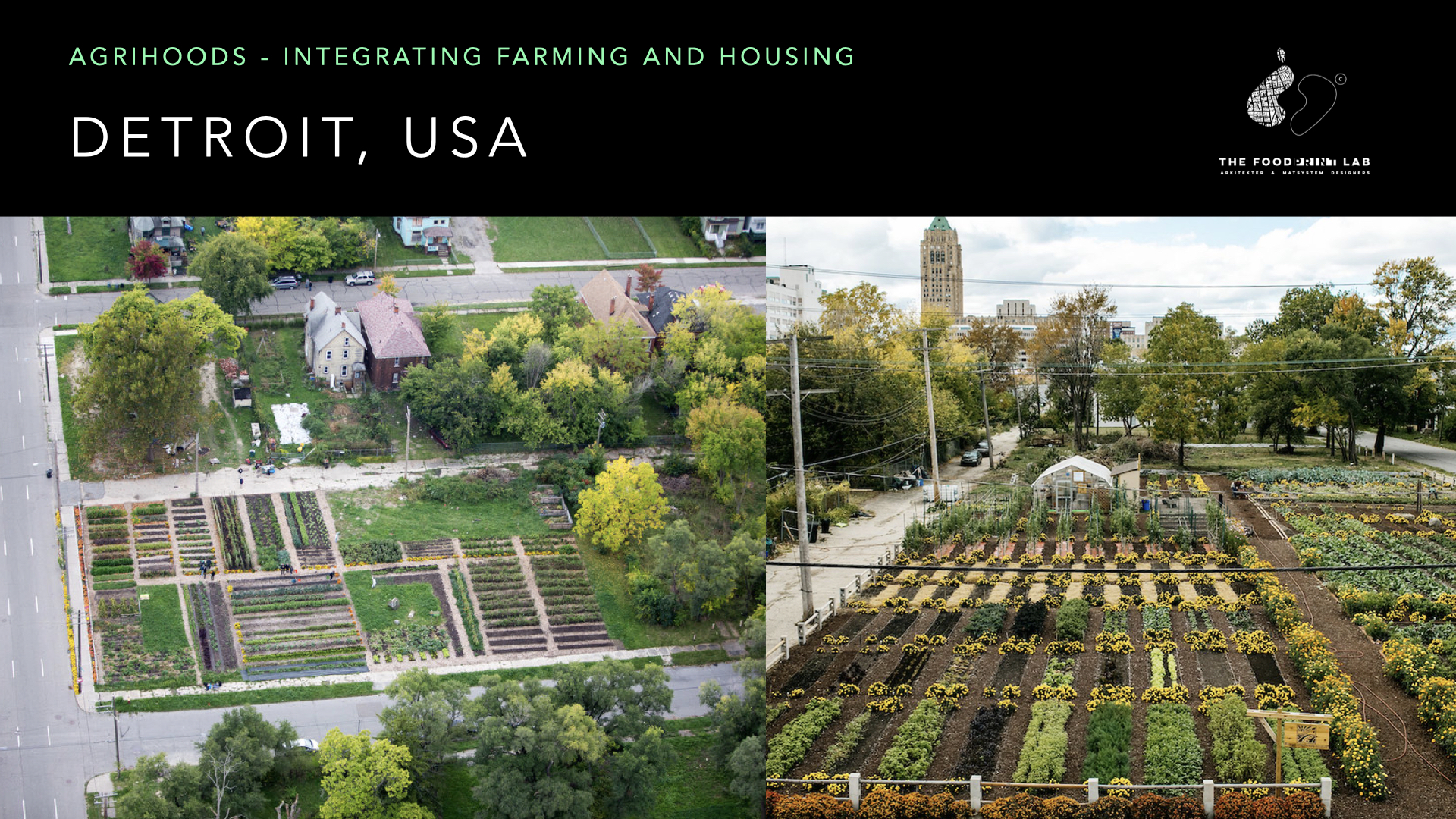News
Community Gardening in Singapore

Community work, or working in a community? There is often an air of idealism surrounding the concept of community work – that all will be simple, peaceful and harmonious. This is sometimes true, however in some other cases, farmers do approach bumps along the way. An interview with Anucha Chomklin, Thai native living in Singapore, discusses the realities of community farming in a dense, urban context and his experience working together with his fellow neighbours to care over Toh Yi Community Garden in the bustling neighbourhood of Bukit Timah in Singapore. The interview provides a fruitful array of learning points that farmers in all places can take away.
It was clear to me that Anucha Chomklin is a man who is very passionate about his craft. He grew up in the countryside in Thailand, and alongside his father who loved, and made gardening a part of his everyday life. It came natural for Anucha to pick up some knowledge, interest and skill for the craft and he brought that along with him when he moved to Singapore. He studied landscape architecture and worked in many different divisions of landscape architecture; from macro plans to logistical groundwork. This varied experience in the field led him to understand the importance of knowing the goods of his service – plants – on an intimate level, as opposed to just studying and discussing their use from a distance.
Toh Yi Community Garden was founded in early 2014 by a grassroots member within the local town council, and Anucha was one of the garden’s initial members. The garden is located in the centre of three surrounding HDB blocks (public housing in Singapore is controlled by the Housing Development Board (HDB), and we often refer to these housing types as HDBs as well. They are often tall, densely arranged blocks of apartments in an urban setting). He found out about it from a friend who was also interested in gardening.
Anucha has been very involved in the garden, and comes daily if he can manage it – otherwise travelling for his full-time job as vice president of the urban planning division at CPG Corporation pulls him away from time to time. The garden, with its estimated 60 members, comprises different sections such as fruits, vegetables, and herbs – all specified in the photo below.
The caretaking of the garden is overseen by members of the garden, and all responsibilities and logistics are collaborative and purely voluntary. That’s not to say that finding volunteers for the garden is tough – on the contrary, Anucha speaks of a waiting list for the community garden’s vegetable plots where residents in the area sign up early in a bid to take responsibility and control over the plots’ gardening. The garden’s committee members meet several times annually when needed, to discuss larger issues of the garden, and ensure that the logistics of the garden are running smoothly. Unfortunately, collaborative work, more often than not, presents obstacles and some issues arise when it comes to the daily running of the community garden:
“The main problem with community gardens is definitely more social than logistical. Some issues that we face is that some owners of plots are not respectful to others, for example, using manure as a fertiliser that may not be pleasant smelling to nearby residents and other farmers who work on the garden. Furthermore, we do have visitors to the garden who, without proper knowledge on pruning or grafting, simply cut down plants in order to retrieve the harvest. Residents of the area are welcomed to help themselves to the harvest of the garden, but it also important to be respectful to the plant and the gardener of the plants. We would prefer that if residents are interested in the garden’s harvest, to contact a member of the garden first.”
In the section of the garden he takes large responsibility for, he recently introduced several new species of butterflies and dragonflies in hope that they choose to call the garden their new home. Not only is he passionate about biodiversity, but he also conducts lessons on important skills such as proper pruning and grafting techniques, as well as medicinal values of some of the plants – and at this point, another member of the garden committee walks by and jokingly announces Anucha as the garden’s landscape advisor.
Logistically, the topsoil in Singapore has been ruined due to high levels of urban construction and therefore has not existed for the past years. The soil used in the garden is purchased from a nursery, and Anucha experiments with a mixture of compost (the garden committee creates their own compost, as pictured in the blue barrel below), soil and food waste within his little corner of the garden. He shovels up the soil excitedly, to reveal a mixture of food waste – eggshells, and leftovers from fruit and vegetables– and soil, which has successfully led to healthy plant growth.
Anucha’s tips for both beginning and seasoned farmers:
1. To learn from others. The benefits of a community farm is the sharing of knowledge. If a novice starts his/her own home-based style of farming, it is definitely possible to learn from youtube and existing literature. The problem is that a lot of the literature in Singapore derives from overseas, like the UK or the US. This makes learning to garden in the local climate a different ballpark altogether.
2. Involve yourself with trial manual work. Microclimate is so important, and talking to gardeners with experience in the local climate, together with trial manual work, will teach you so much more than any book or website can.
3. If you are already a gardener, a home space dedicated to farming can be exciting because it gives you to room to experiment. In a private garden, you are entirely responsible for the successes and failures of the garden.
4. In the case that you are interested in starting or joining a community farm, social problems are more prominent than other problems within a community farm. Be ready to hit bumps in the road and overcome obstacles in dealing with others. A manual and a member discussion portal is important. A rulebook might be necessary to ascertain harmony and respect to others.
With Love,
The GrowGBG Team
